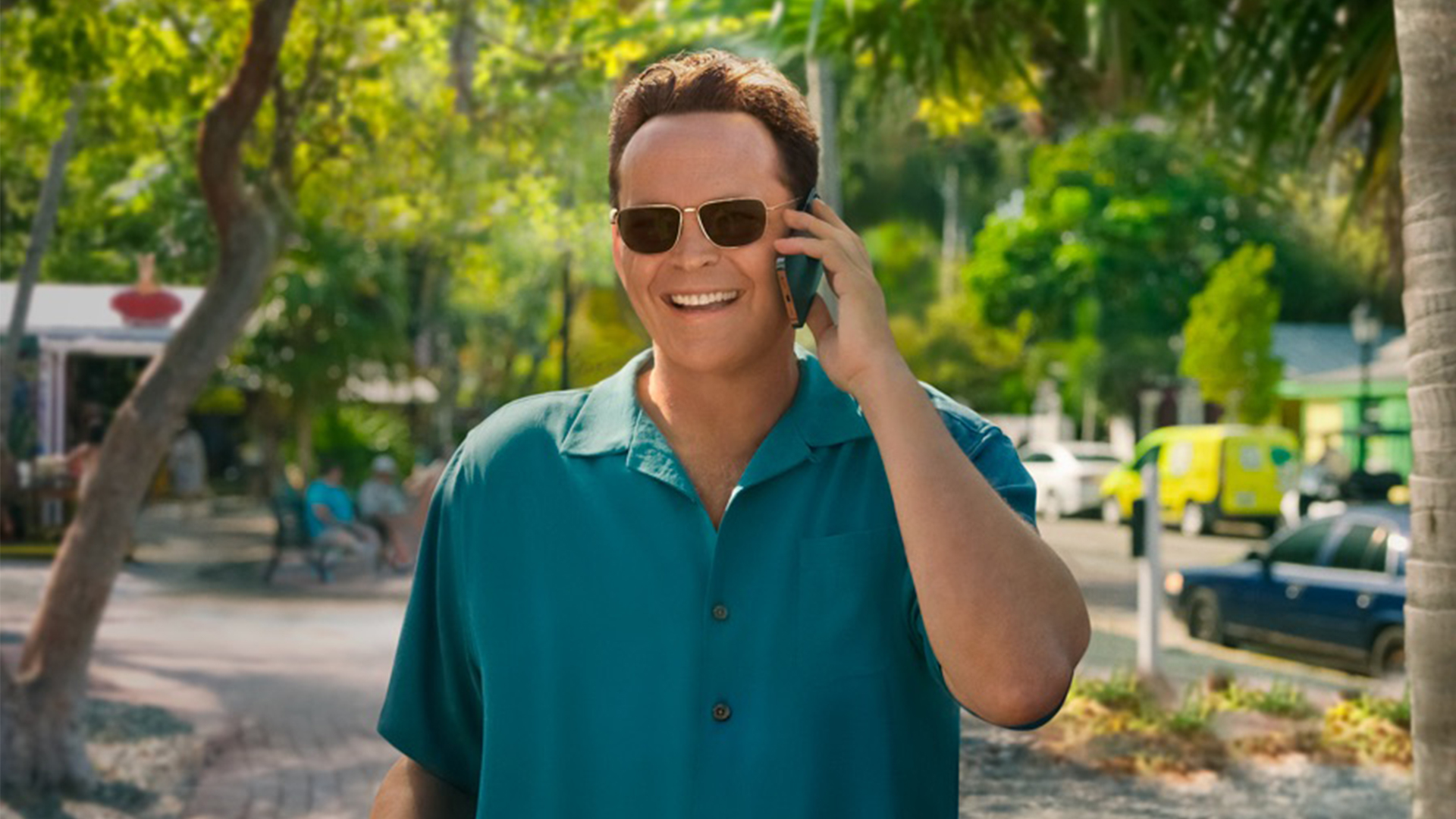Trump Ridiculed for Absurd Complaint in Hush-Money Trial
As his hush-money trial wraps up, Donald Trump thinks key witnesses were not called in his defense. “A lot of key witnesses were not called. Look at your list. Look at the players, and you know who I’m talking about. You can take five or six of them. Why didn’t they call those witnesses? They didn’t call them because they would have been on our side, and it’s a shame,” Trump told reporters outside of court after the trial wrapped up for the day Wednesday. Trump: A lot key witnessers were not called pic.twitter.com/AI8L6tw0np— Acyn (@Acyn) May 29, 2024“And in particular, one witness, who’s now suffering greatly because of what’s happened, because of the viciousness of these thugs. They’re vicious people, what they’ve done to that person, and you know who I’m talking about,” Trump added. Who Trump is talking about is unknown. If it’s Allen Weisselberg, the former chief financial officer of the Trump Organization, he’s serving a prison sentence for lying under oath during Trump’s fraud trial, and thus wouldn’t be a credible witness for either side. What is known is that Trump’s defense team had every opportunity to call any of their own witnesses in his hush-money trial, and they only called two: a paralegal who entered phone records into evidence, and Robert Costello, an attorney who spoke to Trump’s former fixer Michael Cohen in 2018 after the FBI raided his home and office. Trump can hardly expect the prosecution to call witnesses to aid in his defense, unless he has a profound misunderstanding about how a trial proceeding works. If the Republican presidential nominee has complaints, he should be making them to his own lawyers. (Or maybe he could have testified himself.)Trump is on trial for allegedly paying off adult film actress Stormy Daniels to cover up their affair before the 2016 election with Cohen’s help, and is awaiting a verdict from the jury after closing arguments concluded Wednesday. He faces 34 felony charges for allegedly falsifying business records with the intent to further an underlying crime.
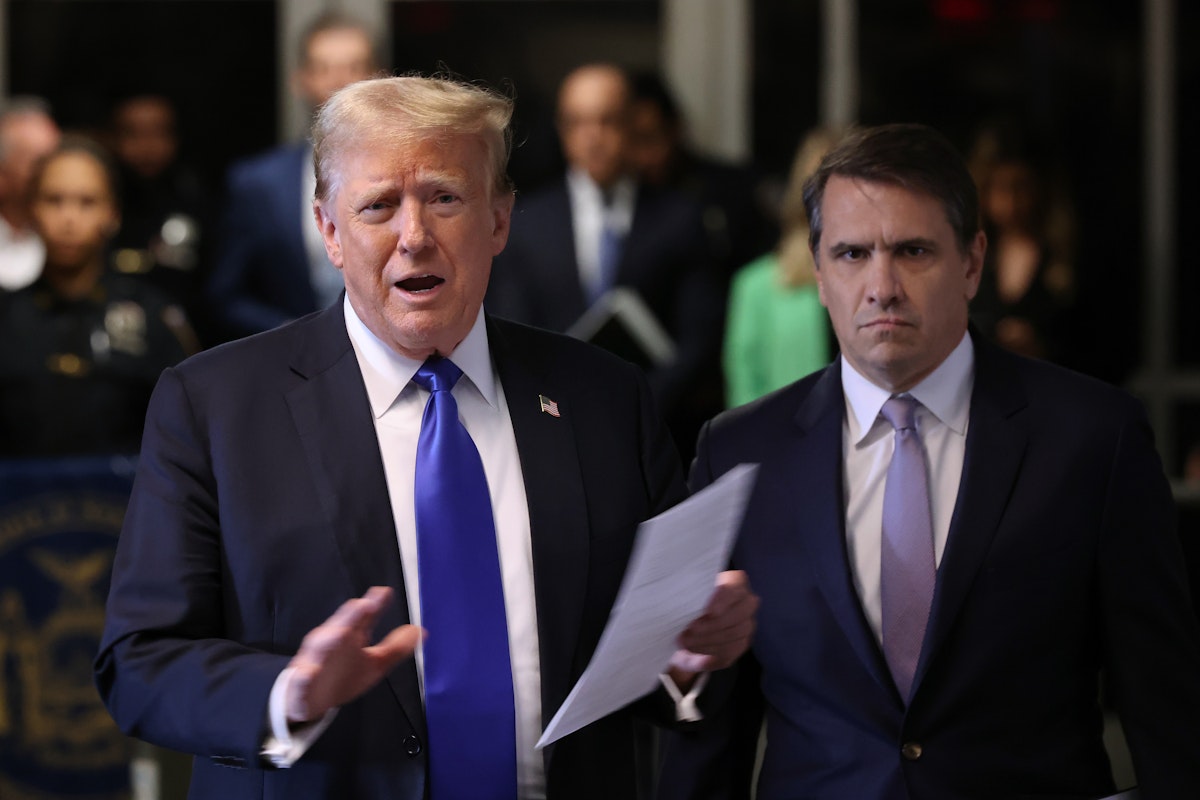
As his hush-money trial wraps up, Donald Trump thinks key witnesses were not called in his defense.
“A lot of key witnesses were not called. Look at your list. Look at the players, and you know who I’m talking about. You can take five or six of them. Why didn’t they call those witnesses? They didn’t call them because they would have been on our side, and it’s a shame,” Trump told reporters outside of court after the trial wrapped up for the day Wednesday.
Trump: A lot key witnessers were not called pic.twitter.com/AI8L6tw0np— Acyn (@Acyn) May 29, 2024
“And in particular, one witness, who’s now suffering greatly because of what’s happened, because of the viciousness of these thugs. They’re vicious people, what they’ve done to that person, and you know who I’m talking about,” Trump added.
Who Trump is talking about is unknown. If it’s Allen Weisselberg, the former chief financial officer of the Trump Organization, he’s serving a prison sentence for lying under oath during Trump’s fraud trial, and thus wouldn’t be a credible witness for either side.
What is known is that Trump’s defense team had every opportunity to call any of their own witnesses in his hush-money trial, and they only called two: a paralegal who entered phone records into evidence, and Robert Costello, an attorney who spoke to Trump’s former fixer Michael Cohen in 2018 after the FBI raided his home and office. Trump can hardly expect the prosecution to call witnesses to aid in his defense, unless he has a profound misunderstanding about how a trial proceeding works. If the Republican presidential nominee has complaints, he should be making them to his own lawyers. (Or maybe he could have testified himself.)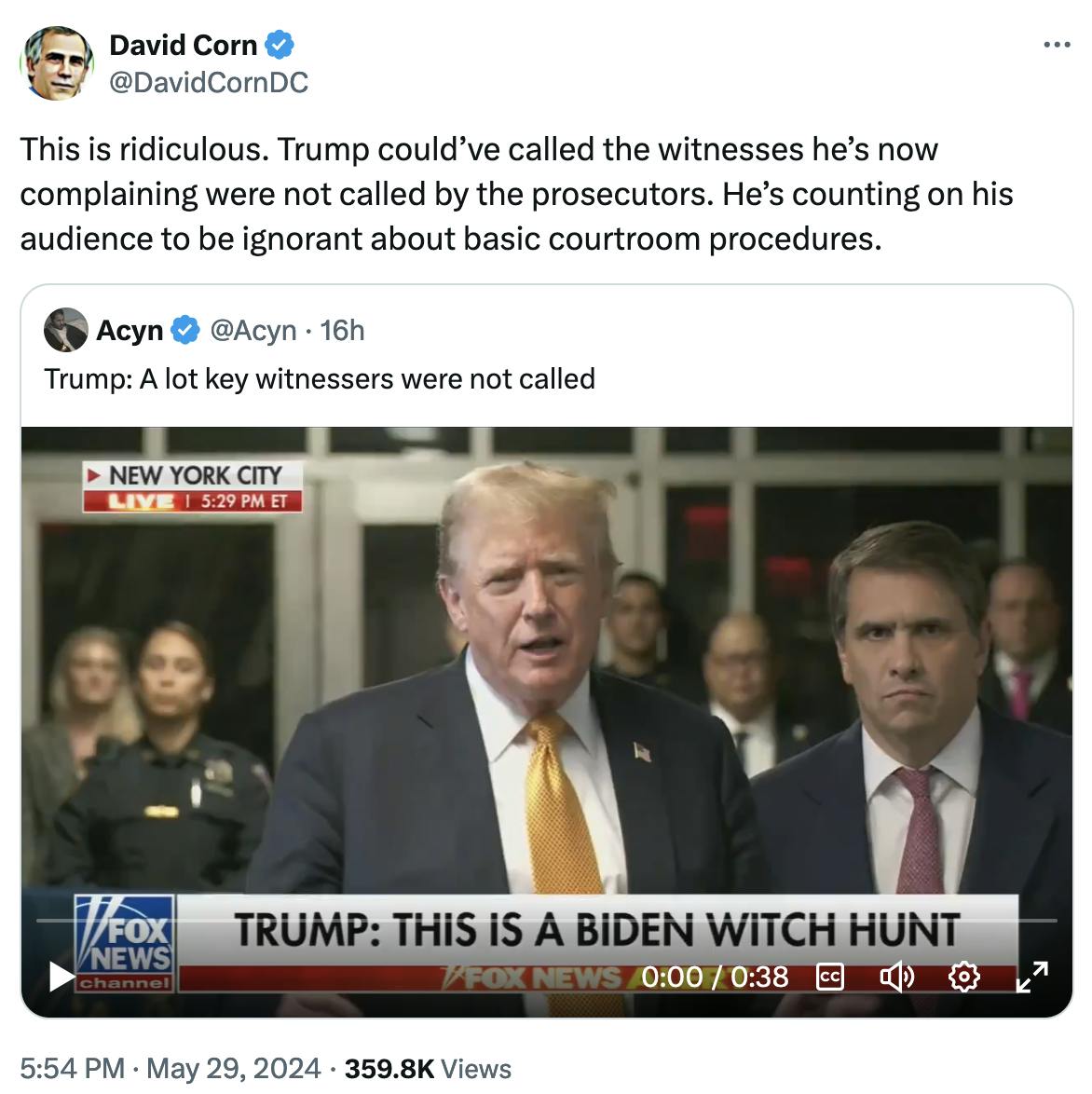
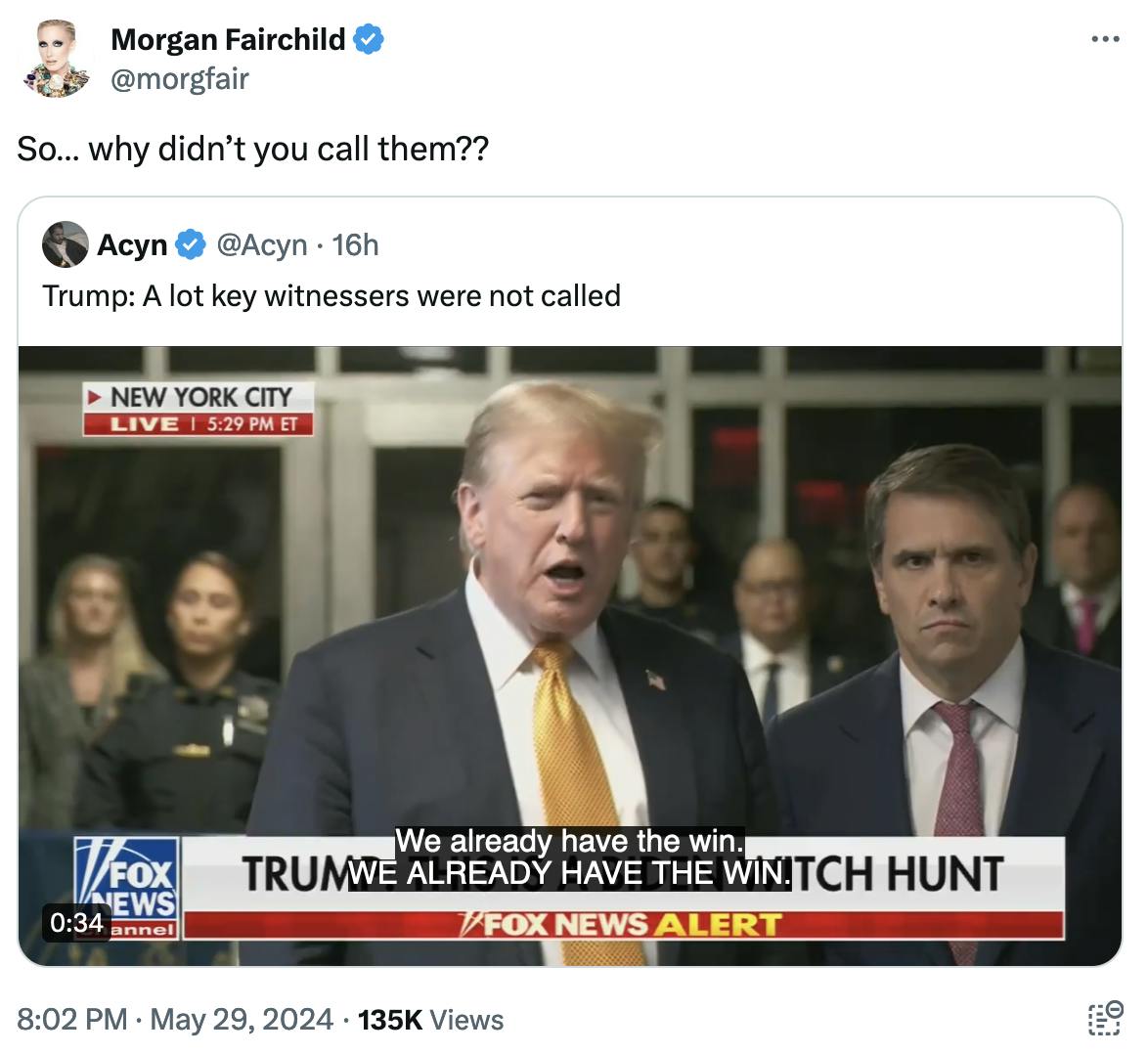
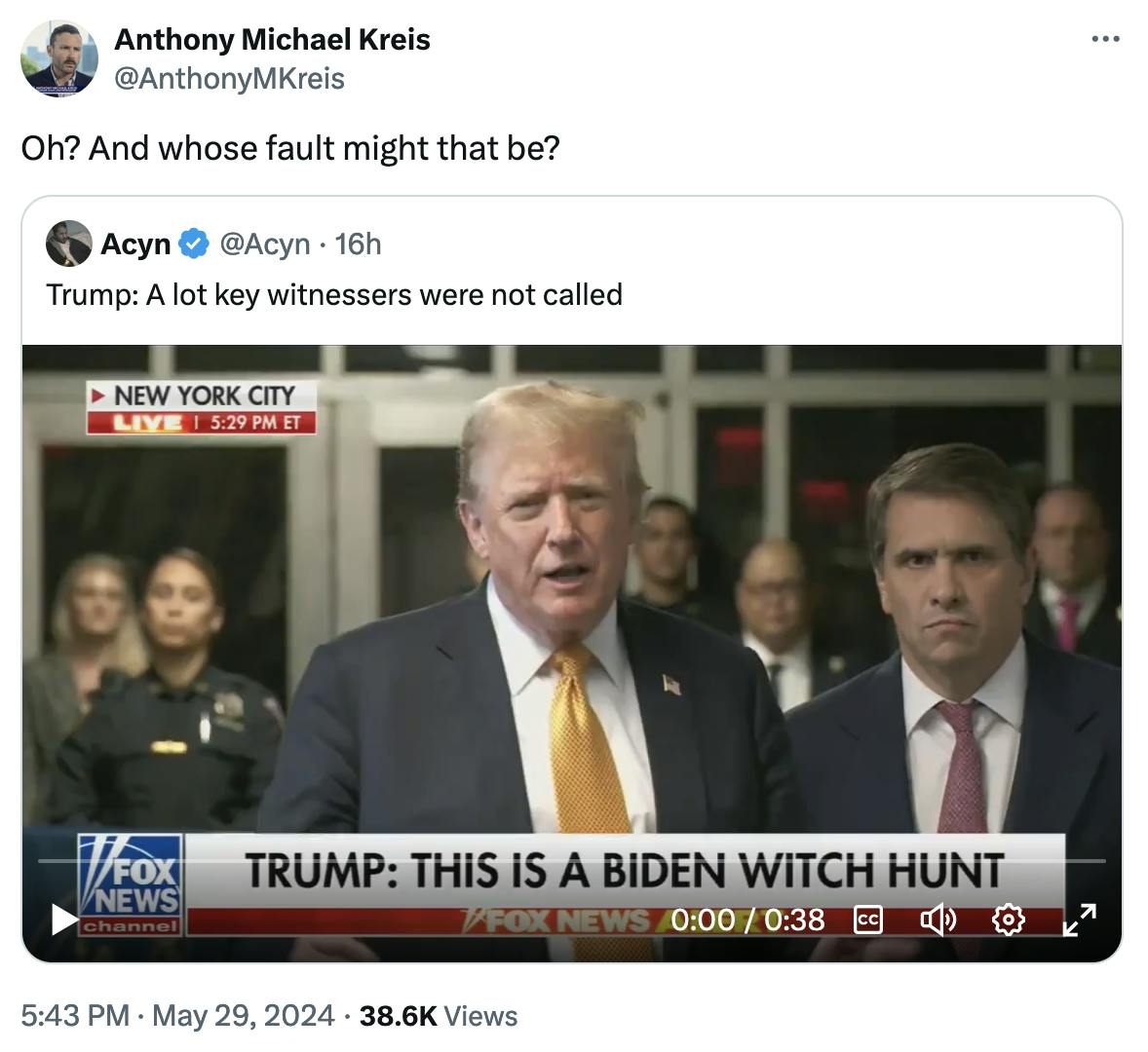
Trump is on trial for allegedly paying off adult film actress Stormy Daniels to cover up their affair before the 2016 election with Cohen’s help, and is awaiting a verdict from the jury after closing arguments concluded Wednesday. He faces 34 felony charges for allegedly falsifying business records with the intent to further an underlying crime.

